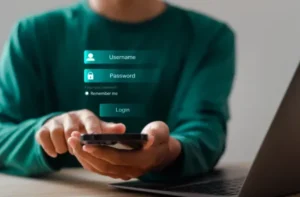Effective communication is key when it comes to scheduling and coordinating meetings or appointments, especially in a professional setting. Sometimes, the way you ask someone for their preferred time can make a big difference in how considerate and respectful you come across.
By exploring alternative phrases for asking “What time works best for you?“, you can ensure that your message feels thoughtful and accommodating. Below, we’ll explore 30 alternatives to help you express yourself with warmth, care, and professionalism.
What Does “What Time Works Best For You?” Mean?
Meaning: This phrase is commonly used to inquire about someone’s availability or preferred time for a meeting, event, or task. It’s an open-ended question aimed at accommodating the other person’s schedule.
Explanation: When you ask “What time works best for you?”, you’re showing respect for the other person’s time and offering them the opportunity to choose a time that is most convenient. It fosters flexibility and consideration.
Scenario Example: “We need to schedule a follow-up meeting. What time works best for you?”
Tone: Respectful, polite, and flexible.
When to Use “What Time Works Best For You?”
This question is typically used in situations where you need to set a time with someone but want to prioritize their availability. It’s ideal for scheduling meetings, calls, or events with colleagues, clients, or anyone you’re working with.
Scenario Example: “I’m organizing the meeting for next week. What time works best for you?”
Tone: Casual, polite.
Is It Professional/Polite to Say “What Time Works Best For You?”
Yes, this phrase is both professional and polite, especially in contexts where you’re working with colleagues, clients, or anyone you respect. It’s a courteous way of asking for someone’s availability, showing that you value their time and input.
What Time Works Best For You Alternatives:
- What Time Is Convenient For You?
- When Are You Available?
- Could You Let Me Know Your Availability?
- What Time Is Best For You?
- When Would Be a Good Time For You?
- Would You Be Able to Let Me Know Your Preferred Time?
- What Time Works With Your Schedule?
- When Would Be a Good Time to Meet?
- Let Me Know When You’re Free.
- When Would You Prefer to Have the Meeting?
- When Is Your Ideal Time for This?
- What Time Can We Meet That Works For You?
- Let Me Know When You Have a Moment.
- When Are You Free to Connect?
- When Would Be a Convenient Time for You?
- What Time Would Suit You Best?
- When Are You Available for a Chat?
- Could You Share Your Available Times?
- What Time Is Convenient for Our Meeting?
- Can You Suggest a Time That Works for You?
- When Would Be the Most Suitable Time for You?
- Let Me Know What Time Is Best for You.
- When Do You Have Availability?
- What Time Would Work for You?
- When Do You Have Some Free Time?
- Could You Please Let Me Know When You’re Free?
- What Time Works for Your Schedule?
- When Would Be an Opportune Time?
- Please Let Me Know When You’re Available.
- When Is It Most Convenient for You?
1. What Time Is Convenient For You?
Meaning: A polite and professional way to ask about someone’s preferred timing.
Explanation: This phrasing emphasizes convenience and gives the person an opportunity to choose a time that works well for them.
Scenario Example: “We need to discuss the project update. What time is convenient for you?”
Tone: Respectful, accommodating.
2. When Are You Available?
Meaning: A straightforward and clear way to ask for someone’s free time.
Explanation: This is a slightly more direct alternative but still respectful and professional. It simply asks when the person is free to meet or talk.
Scenario Example: “When are you available for a quick call to review the proposal?”
Tone: Neutral, professional.
3. Could You Let Me Know Your Availability?
Meaning: A polite request for someone to share their available time slots.
Explanation: This is a formal way of asking for someone’s available time. It shows respect for their schedule and requests them to communicate when they’re free.
Scenario Example: “Could you let me know your availability for a follow-up meeting?”
Tone: Professional, considerate.
4. What Time Is Best For You?
Meaning: Asking someone for their ideal time to meet or talk.
Explanation: A subtle variation of the original phrase, focusing on the person’s preferences for scheduling.
Scenario Example: “What time is best for you to meet next week?”
Tone: Friendly, polite.
5. When Would Be a Good Time For You?
Meaning: Asking someone when they feel a particular time would be good for them.
Explanation: This phrase implies that the person has flexibility and gives them control over the timing.
Scenario Example: “When would be a good time for you to discuss the budget proposal?”
Tone: Friendly, accommodating.
6. Would You Be Able to Let Me Know Your Preferred Time?
Meaning: A more formal version asking for someone’s preferred timing.
Explanation: It expresses a bit more formality while still being respectful and considerate of the other person’s schedule.
Scenario Example: “Would you be able to let me know your preferred time for a meeting next week?”
Tone: Formal, polite.
7. What Time Works With Your Schedule?
Meaning: A phrase acknowledging the person’s busy schedule and offering flexibility.
Explanation: This phrase conveys understanding of the person’s busy life, offering to adjust your schedule around theirs.
Scenario Example: “What time works with your schedule to meet next week?”
Tone: Empathetic, considerate.
8. When Would Be a Good Time to Meet?
Meaning: A casual and professional way of asking when it’s suitable for someone to meet.
Explanation: It’s a straightforward question that focuses on the person’s convenience.
Scenario Example: “When would be a good time to meet for our quarterly review?”
Tone: Neutral, respectful.
9. Let Me Know When You’re Free.
Meaning: A slightly more informal but polite way to ask for availability.
Explanation: This phrase makes the conversation feel more open and less formal while still showing respect for the person’s time.
Scenario Example: “Let me know when you’re free to review the proposal.”
Tone: Friendly, casual.
10. When Would You Prefer to Have the Meeting?
Meaning: Asking the person for their preferred time, showing that their input is valued.
Explanation: This question focuses on the person’s preference, which makes it more personal and considerate.
Scenario Example: “When would you prefer to have the meeting? I’m flexible.”
Tone: Professional, respectful.
11. When Is Your Ideal Time for This?
Meaning: Asking for someone’s ideal time, implying you want to accommodate them as much as possible.
Explanation: This phrasing is a way of asking for someone’s best time without any pressure.
Scenario Example: “When is your ideal time for us to discuss the project’s next steps?”
Tone: Friendly, accommodating.
12. What Time Can We Meet That Works For You?
Meaning: A more direct way to ask about someone’s availability for a meeting.
Explanation: This is a direct but still respectful way to offer flexibility in meeting times.
Scenario Example: “What time can we meet that works for you next week?”
Tone: Polite, respectful.
13. Let Me Know When You Have a Moment.
Meaning: A more casual way to ask when the person is available to talk or meet.
Explanation: This phrasing is typically used in less formal contexts but still shows care for the person’s time.
Scenario Example: “Let me know when you have a moment to discuss the project timeline.”
Tone: Casual, considerate.
14. When Are You Free to Connect?
Meaning: Asking when someone is free to talk or meet, using “connect” as a more professional, broad term.
Explanation: It’s less specific about the meeting but still conveys a polite request for someone’s time.
Scenario Example: “When are you free to connect regarding the upcoming marketing campaign?”
Tone: Polite, professional.
15. When Would Be a Convenient Time for You?
Meaning: Asking when the timing would be convenient for the person.
Explanation: A gentle way to phrase the question while showing full consideration for their time.
Scenario Example: “When would be a convenient time for you to go over the contract?”
Tone: Respectful, polite.
16. What Time Would Suit You Best?
Meaning: Asking someone for their preferred time in a gentle and accommodating way.
Explanation: This phrase emphasizes that you’re asking for the person’s choice, making it feel more flexible and considerate.
Scenario Example: “What time would suit you best for a discussion on the new project?”
Tone: Warm, accommodating.
17. When Are You Available for a Chat?
Meaning: A more casual and friendly way to ask for someone’s availability.
Explanation: Perfect for informal conversations, this phrase is ideal when you want to connect or have a discussion but still want to respect the person’s time.
Scenario Example: “When are you available for a chat about the upcoming event?”
Tone: Casual, friendly.
18. Could You Share Your Available Times?
Meaning: A polite and slightly more formal way to ask for someone’s available times.
Explanation: This is a direct but respectful approach, requesting the person to share their available slots.
Scenario Example: “Could you share your available times for a meeting next week?”
Tone: Formal, polite.
19. What Time Is Convenient for Our Meeting?
Meaning: Asking someone when it’s convenient for them to attend a meeting.
Explanation: This variation highlights the convenience of the other person, emphasizing that you want to schedule at a time that works for them.
Scenario Example: “What time is convenient for our meeting next Tuesday?”
Tone: Professional, considerate.
20. Can You Suggest a Time That Works for You?
Meaning: Requesting the other person to propose a time that suits them best.
Explanation: This phrasing puts the responsibility of choosing a time on the other person, offering them full flexibility.
Scenario Example: “Can you suggest a time that works for you for our strategy session?”
Tone: Flexible, polite.
21. When Would Be the Most Suitable Time for You?
Meaning: Asking when it would be the most appropriate time for the person to meet or talk.
Explanation: This version is more formal and emphasizes the suitability of the time for the other person.
Scenario Example: “When would be the most suitable time for you to discuss the budget?”
Tone: Formal, respectful.
22. Let Me Know What Time Is Best for You.
Meaning: A straightforward and considerate way to ask for someone’s best time.
Explanation: This phrase allows the other person to choose a time that fits their schedule, making it sound accommodating and flexible.
Scenario Example: “Let me know what time is best for you to meet tomorrow.”
Tone: Friendly, direct.
23. When Do You Have Availability?
Meaning: Asking someone when they have the time to meet or discuss something.
Explanation: This is a polite and slightly more formal approach that inquires about someone’s availability in general.
Scenario Example: “When do you have availability for a quick chat?”
Tone: Professional, neutral.
24. What Time Would Work for You?
Meaning: A simple and polite way of asking for someone’s preferred time.
Explanation: This phrase is a common, straightforward alternative to asking about someone’s schedule.
Scenario Example: “What time would work for you for our meeting next week?”
Tone: Casual, professional.
25. When Do You Have Some Free Time?
Meaning: Asking when the person has some availability to meet or talk.
Explanation: This phrase emphasizes a more informal tone but still respects the other person’s time.
Scenario Example: “When do you have some free time to go over the report?”
Tone: Casual, informal.
26. Could You Please Let Me Know When You’re Free?
Meaning: A polite request asking for someone’s free time to meet.
Explanation: This phrasing is a formal and polite way to show that you value the person’s time and are open to their availability.
Scenario Example: “Could you please let me know when you’re free for a quick discussion?”
Tone: Formal, polite.
27. What Time Works for Your Schedule?
Meaning: Asking when a specific time will align with the person’s schedule.
Explanation: This version focuses on the person’s schedule and implies flexibility in accommodating them.
Scenario Example: “What time works for your schedule for a one-on-one session?”
Tone: Respectful, professional.
28. When Would Be an Opportune Time?
Meaning: Asking when it would be a good or advantageous time for the person to meet.
Explanation: This phrase conveys thoughtfulness by acknowledging the opportunity for the person to meet when it’s most convenient for them.
Scenario Example: “When would be an opportune time for you to discuss the project updates?”
Tone: Polite, professional.
29. Please Let Me Know When You’re Available.
Meaning: A polite and formal way to request the other person’s availability.
Explanation: This is an all-encompassing, respectful way to ask for someone’s time in order to schedule a meeting or discussion.
Scenario Example: “Please let me know when you’re available to go over the proposal details.”
Tone: Formal, respectful.
30. When Is It Most Convenient for You?
Meaning: Asking when it would be the most convenient for the person to meet.
Explanation: This phrasing is a thoughtful way of respecting the person’s time and asking when the timing would be ideal for them.
Scenario Example: “When is it most convenient for you to discuss the next steps?”
Tone: Formal, respectful.
Conclusion
Selecting the right phrasing when asking about someone’s availability helps create a smooth, considerate communication flow, especially in professional settings. Whether you’re looking for a formal or casual tone, the alternatives above provide a wide range of options for expressing flexibility, respect, and warmth.
By tailoring your request for time to the situation and the individual, you can ensure your message is received thoughtfully, allowing both you and the other person to schedule with ease.
Recent Posts
30 Other Ways to Say “Thank You for Sharing” Professionally (With Examples)
30 Other Ways to Say “Pros and Cons” Professionally (With Examples)
30 Other Ways to Say “As Soon As Possible” Professionally (With Examples)
30 Other Ways to Say “Thank You for Your Attention” Professionally (With Examples)

Daniel Jack is a passionate writer and founder of LexiQuester, a platform dedicated to unraveling the mysteries of words and language. With a love for storytelling and linguistic exploration, he crafts engaging content that inspires curiosity. When he’s not writing, Daniel enjoys diving into books and discovering hidden gems of knowledge.














